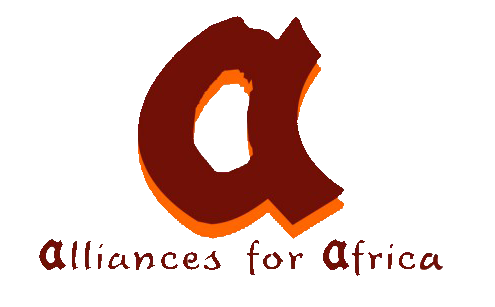Communiqué issued at the end of 2-Day Capacity Building Workshop for Male Political Leaders in the South-East Geopolitical Zone on Gender and Politics towards Full Implementation of 35% Affirmative Action organised by GENDER AND DEVELOPMENT ACTION (GADA) in partnership with ALLIANCES FOR AFRICA (AfA) with support from UN WOMEN held Monday, 25th – Tuesday 26th September, 2017 at Utopia Hotel and Apartment, Enugu, Enugu State.
PREAMBLE
A 2-Day Capacity Building Workshop was organized for Male Political Leaders in the South-East Geopolitical Zone on Gender and Politics towards the full implementation of 35% Affirmative Action by GENDER AND DEVELOPMENT ACTION (GADA) in partnership with ALLIANCES FOR AFRICA (AfA) with support from UN WOMEN. The Workshop was conceived as a way of deepening women engagement in politics and governance in line with the objective of 35% Affirmative Action. The Workshop aimed at evolving frameworks for creating more spaces for inclusive engagement and participation of women political actors in the governance process towards imbuing Nigeria’s democratic process.
The Capacity Building Workshop was organized for male political leaders across political parties from the five Southeast States, namely: Abia, Anambra, Ebonyi, Enugu and Imo. The workshop was also attended by Resident Electoral Commissioners from the five states of the South-East who represented the Independent National Electoral Commission (INEC).
The implementing partners; namely GADA, AfA and UN WOMEN deployed the capacity building workshop towards achieving the overall objective of sensitising and mobilizing male political leaders in furtherance of conscious efforts aimed at growing the population of women politicians and to increase the participation of more women actors in the governance process. The specific objectives of the workshop include (a) catalysing robust engagement with male stakeholders on gender and politics; (b) sustaining partnership with male political leaders for better appreciation and collaboration on gender and politics; (c) building networks and alliances for sustained advocacies for policy change towards entrenching inclusive gender political participation in pursuit of the actualization of 35% Affirmative Action.
The rationale for the workshop is against the backdrop of the need to redress marginalisation of women in politics and governance. The exclusion of women in the governance process has been the direct fallout of lack of proper appreciation of gender related issues and concerns for the peculiar challenges women face in politics. There is also the challenge of lack of appropriate capacities amongst dominant male politicians for recognising and in engaging gender issues and concerns of women. After two decades of advocacies efforts aimed at promoting 35% Affirmative Action, Women still remain increasingly vulnerable in the political spaces and, as a consequence, manifestly endangered in governance process owing to inadequacy of representation of gender voices in policy formulation as well as implementation of development programmes and projects.
The capacity building workshop therefore became crucial to sensitise and initiate networks of partnership with male political stakeholders on approaches and strategies appropriate for entrenching gender inclusion in politics in meeting global best practices of democratic inclusion towards the realisation of 35% Affirmative Action.
PRESENTATIONS:
The goodwill message from the UN WOMEN reiterated the importance of participatory politics and inclusive governance in promoting enabling democratic environment that guarantees opportunities for all without gender inhibition and discrimination. The Executive Director of GADA Mrs. Ada Agina-Ude urged participants to be open-minded to the critical issues and concerns relating to gender and politics as well as the need for the implementation of 35% Affirmative Action
The following presentations were made at the workshop on approaches for Implementing 35% Affirmative Action through engagement of male politicians on issues and concerns that relate to gender and politics: (a) Gender and Election/Electioneering (International and Local Case Studies) (b) Key International Legal Instruments and the Rights to Political Participation (c) Legal and Institutional Frameworks on the Role of Political Parties and Citizens’ Quest for Public Office; (d) Alternative Actions and Means of Increasing Women participation in Politics and Decision-Making; (e) Party Politics: Best Practices as it relates Gender Equity in Governance and Decision-Making; (f) National Gender Policy: Impact and Integration of Women into Leadership Position.
DELIBERATIONS:
Participants at the workshop exhaustively engaged the presentations, sought clarifications on issues relating to gender and concerns of women regarding participation in politics and governance process. Participants also made far-reaching suggestions and proposals on strategies for engagement and networking towards deepening the partnership with male political leaders and politicians in mainstreaming gender in politics as well as governance process.
OBSERVATIONS:
The following observations were made by participants during the deliberation stage:
- That male politicians often deploy stereotypes as weapons of blackmail and oppression against female politicians with the view to pull them down.
- That Political party meetings often take place without due consideration for the convenience of female politicians who are often shut out of meetings scheduled for odd times; particularly at nights.
- That there is lack of equity of participation for women in politics and governance as a result of existing gaps created by societal norms which marginalise women.
- That rather than harping on the misconceived notion of seeking equality with male politicians efforts should geared towards advocating equity for women in political participation and inclusivity in governance.
- Participants further observed the need to de-emphasise existing cultural inhibitions to facilitate the inclusion of women in decision making processes in order to ensure equity.
- That Political Parties do not make adequate resources available to assist women in electioneering process towards catalyzing gender equity and inclusive governance.
- That there is huge disparity in the female representation compared to the dominance of male in political organs and institutions such as political parties and election management bodies (i.e.) INEC and SIECs.
- That there is the need to accommodate the voices of female politicians in political party administration as a way of ensuring equity in decision making.
- That there is the need for political parties to include relevant provisions in their constitutions and manifestoes that engenders the implementation of affirmative action.
- That there is the need for INEC to effectively monitor activities of political parties and in particular in cases where a political party make provision for implementation of the 35% Affirmative Action in their Constitutions and Manifestoes.
- Participants observed that IPAC and political parties are not doing enough to enlighten their members on the role of gender in politics as well as the requirements of Affirmative Action.
RESOLUTIONS:
Participants at the workshop made resolutions and or recommendations towards engaging issues of gender and concerns of women in politics towards achieving the goals of 35% Affirmative Action as hereunder stated:
- Participants demand that all political parties should formulate policies and constitutional provisions that will eliminate Gender Stereotypes that serves as inhibition to political participation and inclusion in governance process.
- Participants demand that INEC should effectively monitor the implementation of the 35% Affirmative Action by political parties where such provisions have been made in party Constitutions and Manifestoes.
- Participants demand that IPAC and INEC should partner with relevant entities in cascading this capacity building workshop to all other geo-political zones and National Levels.
- Participants demand increased advocacies by informed stakeholders towards mainstream issues and concerns relation to gender and participation of women in politics.
- Participants demand mechanisms and institutional arrangements for implementing policies and constitutional provisions relating to Affirmative Action.
- Participants demand the actualization of the 35% Affirmative Action in political appointments at all levels of government.
- Participants agreed that all political parties represented at the workshop to be committed to the Draft CHARTER ON IMPLEMENTATION OF 35% AFFIRMATIVE ACTION (CIAA) and deploy it as a tool of mobilising greater consensus at the level of each political party for further inputs and engagements in the future.
- Participants agreed there is need for sensitization and capacity building for young women on political participation and leadership.
- Participants agreed there is a need to secure equal employment opportunities for women as a way of promoting political empowerment.
CONCLUSION
Participants expressed satisfaction on the objective of the capacity building workshop in addressing the critical issues relating to gender and concerns of women on political participation. Participants call for more platforms of engagement at the local government, State, Geo-political Zones as well as National levels to ensure sustained enlightenments of the citizenry on the goal of Affirmative Action.
Participants expressed gratitude to GADA, AfA and UN WOMEN for organizing the Workshop. Participants expressed anticipation for future engagement with the Draft CHARTER ON IMPLEMENTATION OF 35% AFFIRMATIVE ACTION (CIAA) towards ensuring more participatory politics and inclusive democracy in meeting the aspirations of the generality of citizens for good governance.
Signed
——————————–
For GADA
——————————–
For AfA


Leave a Reply
Want to join the discussion?Feel free to contribute!